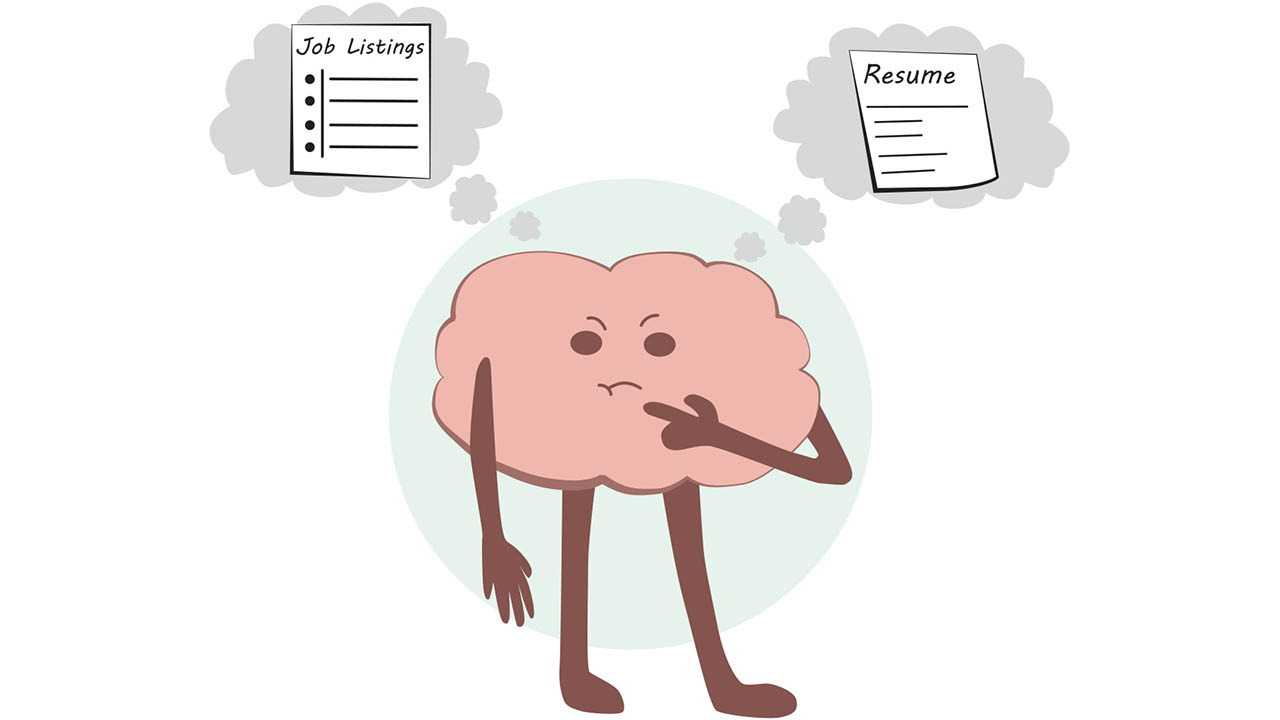Job hunting while living with a mental illness
 CREDIT: JESSICA WILSON
CREDIT: JESSICA WILSONJob hunting can be doubly difficult to navigate when we're dealing with a mental illness.
At some point in everyone’s life, they will be struck by a mind-consuming mental health problem. It could be minor, it could be life-altering, but everyone gets a dose. The question is whether or not you will let it control your life.
The people around you at work, in school, at home, and all around the world suffer from some form of mental illness every day, and it makes the host feel a roller coaster of emotions that drowns them in insecurities, worthlessness, and their deepest fears.
I’m sure that anyone who reads this has either been introduced to mental health issues or has even been subject to its oppression. But as some of you are closing the chapter for your education and starting to look for employment opportunities, the question of how to manage and find jobs while living with mental health issues comes to mind.
“Can it be done? Can I find a job while living with a mental illness?” The answer is yes! So, let’s look at how. Mental Health America and Workforce Innovation laid out some steps to finding a job for anyone with mental health issues.
1: Get familiar with what your good at
The key is to find a job that suits your interests and skills. Acquiring a job where you can remain passionate and apply your talents will help boost your confidence and lessen your insecurities. When you do a job that provides meaning to you, it can provide a sense of stability and security. So even if you can’t find a job in your field, if you can find a job where you can apply your talents and strengths, you have a greater chance of performing the best you can.
2: Take it one step at a time
Applying for a job can surely be overwhelming and interviews turn us into balls of sweat, and the risk of rejection can be detrimental to the experience. The toll on one’s mental health would be great. So, creating a work plan and taking the process one step at a time would help create a realistic way to approach a job hunt. In the meantime, having a self-care plan that aids you in the process would help support you on your journey to secure a job, while maintaining your mental health. While finding a job is important, it can be chaotic, so finding suitable resources can help secure you on your path to finding a job.
3: Social environment
Once you obtain your job, it’s important to make sure that you surround yourself with positive influencing people. You don’t need any negativity at the workplace. A smaller number of people to familiarize yourself with would be best, as being completely alone would bring feelings of isolation.
4: Stability
Having a stable workday schedule can be positive for maintaining healthy mental well-being. If you can plan out your day and feel better by having the whole day sorted out, it would be easier to eliminate unpredictable outcomes in your day that may cause more anxiety. So, finding a schedule that suits you best would increase your daily productivity.
5: Shifts
Considering the length of your shifts is also very important and crucial so that you have relaxing periods to unwind. Contemplate whether a part-time or full-time job would suit you, and make sure that whatever you choose doesn’t make you sleep deprived, as that is the fastest way to provoke someone with bipolar disorder.
6: To disclose or not to disclose
The biggest question is whether or not you should let your employers know about your mental illness. Ultimately, disclosing it is a personal choice. Some people prefer to let them know in the interview right away to reduce anxiety. Furthermore, the Canadian Human Rights Act prohibits discrimination against those who have a mental illness. However, an interviewer may unintentionally change their mannerisms and use bias upon further questioning. It really depends on your comfort and whether or not you feel it is something your employer needs to know.
Contrary to common belief, hiring people with mental illness can be beneficial. Employers have reservations about hiring people with mental health issues as they feel they may be unpredictable in the workplace. However, CBC news reporter Emily Plunkett talks about why it can be good to hire people with mental illness.
For example, people with depression, like herself, can come up with creative solutions to problem- solve. In addition, she finds herself to be more compassionate and caring to her coworkers and customers as they might be having bad days. Plunkett’s ability to empathize with those around her in the workplace due to her own struggles makes her a good candidate for various types of employment.
Once you have the courage to peruse employment, know that you have as much of a chance to get a job as another if you follow what suits you best and accommodate for your mental health. I am not saying it will be easy or that you will get a job right away, but if you identify the resources you need and equip yourself for the workforce while taking consideration of your mental well-being, then a suitable job is in the foreseeable future.















